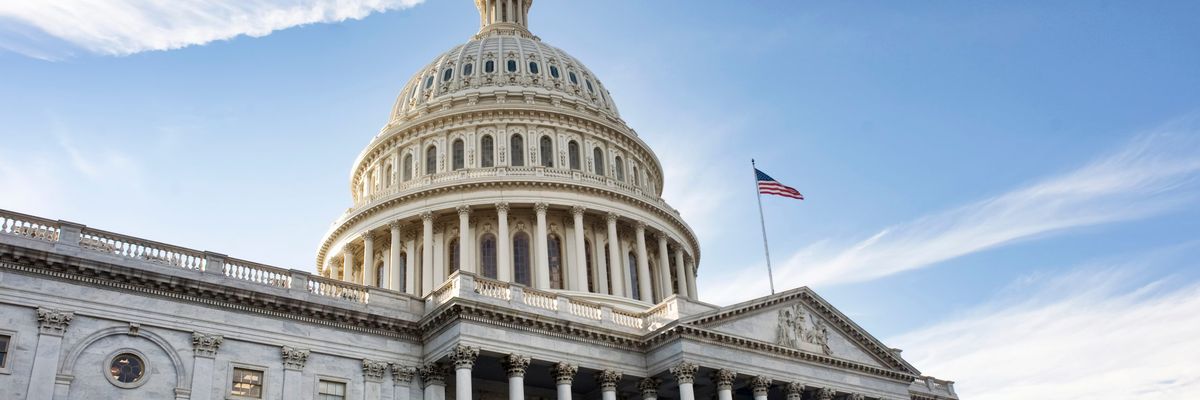Sixteen progressive groups have signed a letter urging the next House Foreign Affairs Committee chair to help a “potential Biden administration” save the nuclear deal with Iran.
All three candidates to run the committee — one of two powerful foreign policy bodies in Congress — have voiced their support for the deal. Progressives are now asking for specific commitments from the candidates, including a promise to put economic sanctions relief on the table and stop any “poison pill” legislation that would undermine diplomacy with Iran.
Rep. Brad Sherman (D–Calif.) and Rep. Gregory Meeks (D–N.Y.) are currently favored to win the chairmanship, while Rep. Joaquín Castro (D–TX) is running as an insurgent progressive candidate.
“This is potentially the first major foreign policy issue an HFAC chair might have to deal with,” said Ryan Costello, policy director at the National Iranian American Council, one of the signatories of the letter. “The JCPOA has been a real foreign policy litmus test for members of Congress. It’s gotten more scrutiny than maybe any other of Obama’s diplomatic deals.”
The letter was also signed by the Arms Control Association, the progressive Jewish organization J-Street, and foreign policy-focused groups Just Foreign Policy and Win Without War.
The United States and five other world powers had agreed to lift international economic sanctions on Iran in exchange for restrictions on the Iranian nuclear program, a 2015 deal known as the Joint Comprehensive Plan Of Action.
President Donald Trump broke from the deal in 2018, and instead began a “maximum pressure” campaign against the Iranian government.
Democratic presidential nominee Joe Biden seems committed to restoring the JCPOA, as his advisors have said that they would support a return to the deal or something like it.
But other roadblocks could emerge from Congress. Friday’s letter from progressives warns that, “many in Congress sought to play spoiler” during the original JCPOA negotiations “by undermining America’s diplomats as they sought to trade in sanctions for far-reaching nuclear concessions.”
“The last time [a deal with Iran] happened, it was a major slog through Congress, with a lot of misinformation about the agreement, and a lot of money being poured in against the agreement,” Costello said.
Indeed, the House voted to disapprove of the JCPOA in 2015, but the measure ultimately failed after Senate Democrats filibustered the bill.
Rep. Eliot Engel (D–N.Y.), the current chair of the House Foreign Affairs Committee, was one of nineteen House Democrats who joined with Republicans to vote against the deal in 2015.
Members of Congress have also supported new sanctions measures ostensibly unrelated to the nuclear file that could jeopardize diplomacy with Iran.
Congress overwhelmingly voted for new sanctions on Iran, North Korea, and Russia in 2017, leading Iran to accuse the United States of violating the nuclear deal.
A majority of House members signed a letter in March 2020 calling for a new arms embargo against Iran. The Trump administration has used the letter to justify “sanctions snapback,” a risky diplomatic move that threatens to kill the JCPOA once and for all.
But progressives now see an opportunity to push Democrats to the left on foreign policy.
Engel will not be returning to Congress in 2021, as he was defeated in New York’s June primary elections, with Reps. Sherman, Meeks, and Castro vying to take over his position as chair of the House Foreign Affairs Committee.
A coalition of seventy progressive groups led by Demand Progress has called on Democrats to adopt a “vision of restraint and progressive realism,” and has tried to organize public discussions involving all three candidates.
Friday’s letter ties the Iran issue to several issues important to the progressive foreign policy coalition.
It calls for the House Foreign Affairs Committee to examine how economic sanctions have affected civilians in Iran — especially in light of the coronavirus pandemic — and asked that the United States “put additional incentives on the table in exchange for Iranian concessions on regional security and human rights.”
The letter also asks for an investigation into “the sidelining of career civil service officers for their work on the JCPOA.”
An internal State Department investigation last year found that the Trump administration had pushed out a Iranian-American career official after more hawkish officials baselessly accused her of loyalty to Iran and anti-Trump bias.
The best evidence of progressive groups’ success so far may be the fact that all three candidates for HFAC chair support the JCPOA.
Meeks and Castro were staunch supporters of the deal from the beginning, and boycotted a 2015 speech by Israeli prime minister Benjamin Netanyahu urging Congress to reject the JCPOA.
Sherman had originally joined Engel and the Republicans in voting against the JCPOA in 2015, but has since gone on the record in support of restoring the deal.
“Clearly, that’s something that’s shifted, maybe as a result of the HFAC chair race, because a majority of members are opposed to the Trump administration's approach that has brought us to the brink of war,” Costello said.
















